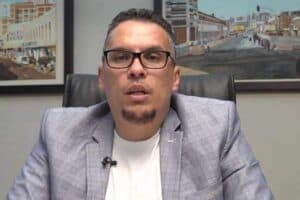Russia's Central Election Commission on Monday unanimously rejected top opposition figure Alexei Navalny's bid to run against President Vladimir Putin next year, leading him to urge a boycott of the polls.
The commission voted 12 to zero in barring Navalny from the presidential election, citing a controversial embezzlement conviction for which he received a five year suspended sentence.
Navalny’s crime qualifies as “serious” and therefore rids the individual of the right to stand for president,” said commission member Boris Ebzeyev ahead of the vote, urging the body to bar him from running.
The decision prompted the 41-year-old protest leader — who maintains that the court case against him was fabricated for political reasons — to call for a boycott of the election.
“We are declaring a strike by voters. We will ask everyone to boycott these elections. We will not recognise the result,” Navalny told journalists.
He said he would still appeal the commission’s decision.
Navalny held rallies across Russia Sunday, with more than 15,000 people endorsing his candidacy. He submitted his nomination on Sunday evening and expressed suspicion when the commission announced they would make the decision as quickly as the next day.
In a video published after the decision, Navalny said that offices he set up for his presidential campaign will now turn into a network for the electoral strike.
“To go to polling stations now is impossible and indecent,” he said.
“The main goal of the Kremlin will now be to falsify election turnout,” he said, urging people who want to go to the polling station count the people attending instead of casting a ballot.
– ‘Electoral strikes’ –
Navalny, who has campaigned across Russia in recent months, argued earlier in front of the commission that his conviction was lifted in the European Court of Human Rights, and that banning him from participation would make March’s election illegitimate.
“I proved in court that my case was fabricated,” Navalny said, urging the commission to make a decision that would be fair and independent.
“I assure you, a huge amount of people will not go to this election, would actively boycott this election” and hold “electoral strikes.”
In a passionate speech he accused the commission of barring true opposition figures while allowing candidates who are not interested in fighting corruption or in conducting real campaigns.
In a heated exchange, commission chair Ella Panfilova told Navalny it is not in her power to lift his conviction, further accusing the protest leader of “zombifying young people”.
“You are young, you have everything ahead of you,” she finally told Navalny. Previously he was told he would not be able to run before 2028.
Navalny, who has built a sizeable campaign through his blog and YouTube on an anti-corruption platform, has called several mass rallies across Russia this year which saw an unusually high number of young people participate.
Navalny was first sentenced in 2013 on the embezzlement charges, which accused him of defrauding the Kirov regional budget of about $270,000.
The European Court of Human Rights last year quashed the ruling, saying it was unfair, and Russia’s Supreme Court ordered a retrial.
The retrial in a Russian court however gave Navalny the exact same sentence as before, using almost identical wording as the 2013 decision.






